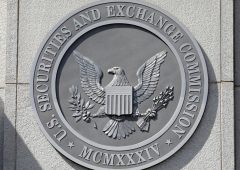Apple to Settle Siri Privacy Lawsuit for $95 Million
19.01.2025 15:13 1 min. read Kosta Gushterov
Apple is set to resolve a long-standing lawsuit with a $95 million settlement, addressing allegations that its Siri voice assistant unlawfully recorded user conversations without consent.
The case, initially filed in August 2019, claimed that Apple’s digital assistant inadvertently captured private conversations and, in some instances, shared this data without user approval.
As part of the proposed settlement, Apple will verify that it permanently deleted Siri audio recordings collected before October 2019. Additionally, the company will enhance transparency by explaining how users can opt into the “Improve Siri” feature, which allows Apple to analyze audio interactions to improve Siri’s performance.
Apple will also be required to disclose the specific types of data collected through this feature.
The lead plaintiffs, Fumiko Lopez and a minor identified as A.L., alleged that Siri on their iPhone XR and iPhone 6 devices recorded conversations without triggering a wake phrase or gesture.
They argued that these recordings were made without consent, with Apple failing to adequately inform users about the possibility of inadvertent recordings or provide an option to opt out.
The settlement terms will be reviewed in a proposed court hearing scheduled for February 14. If approved, this agreement will bring an end to a legal battle over privacy concerns surrounding Apple’s Siri devices.
-
1
Nvidia CEO Urges UK to Invest in AI Infrastructure or Risk Falling Behind
10.06.2025 9:00 1 min. read -
2
KuCoin Plants Its Flag in Bangkok With a Licensed Thai Exchange
14.06.2025 13:00 1 min. read -
3
Why Gold Could Be the Smart Play Amidst US Debt Surge
11.06.2025 11:00 1 min. read -
4
Warren Buffett Narrows His Bets as He Prepares to Step Down
14.06.2025 16:00 2 min. read -
5
MEXC Sets Up $100M Emergency Fund to Protect Users From Major Security Incidents
12.06.2025 11:00 1 min. read
Here Is How Your Crypto Portfolio Should Look Like According to Investment Manager
Ric Edelman, one of the most influential voices in personal finance, has radically revised his stance on crypto allocation. After years of cautious optimism, he now believes that digital assets deserve a far larger share in investment portfolios than ever before.
GENIUS Act Could Reshape Legal Battle over TerraUSD and LUNA Tokens
In the case involving Terraform Labs and its co-founder Do Hyeong Kwon, the defense has asked the Federal Court for the Southern District of New York to extend the deadline for pretrial filings by two weeks, pushing it beyond the original date of July 1, 2025.
Coinbase Surges 43% in June, Tops S&P 500 After Regulatory Wins and Partnerships
Coinbase has emerged as the best-performing stock in the S&P 500 for June, climbing 43% amid a surge of bullish momentum driven by regulatory clarity, product innovation, and deeper institutional interest in crypto.
What Brian Armstrong’s New Stats Reveal About Institutional Crypto Growth
Coinbase CEO Brian Armstrong has spotlighted a significant acceleration in institutional crypto adoption, driven largely by the surging popularity of exchange-traded funds and increased use of Coinbase Prime among major corporations.
-
1
Nvidia CEO Urges UK to Invest in AI Infrastructure or Risk Falling Behind
10.06.2025 9:00 1 min. read -
2
KuCoin Plants Its Flag in Bangkok With a Licensed Thai Exchange
14.06.2025 13:00 1 min. read -
3
Why Gold Could Be the Smart Play Amidst US Debt Surge
11.06.2025 11:00 1 min. read -
4
Warren Buffett Narrows His Bets as He Prepares to Step Down
14.06.2025 16:00 2 min. read -
5
MEXC Sets Up $100M Emergency Fund to Protect Users From Major Security Incidents
12.06.2025 11:00 1 min. read


